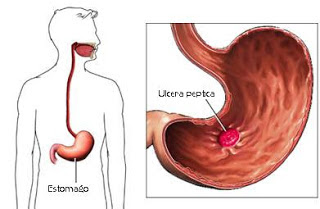Gastritis - Nursing Diagnosis Interventions
 Gastritis is an inflammation of the gastric mucosa, may be acute or chronic. Acute Gastritis, stomach disorders are the most common cause of gastric mucosal redness, edema, and erosion surfaces.
Gastritis is an inflammation of the gastric mucosa, may be acute or chronic. Acute Gastritis, stomach disorders are the most common cause of gastric mucosal redness, edema, and erosion surfaces.Chronic gastritis is common among the elderly and people with pernicious anemia. It is often present as chronic atrophic gastritis, gastric mucosal layer where all inflamed, with a reduced number of cells and parietal head. Acute or chronic gastritis can occur at any age.
Causes of Gastritis :
- Consumption of unhealthy foods, such as chili (or allergic reactions) or alcohol.
- Drugs such as aspirin and nonsteroidal anti-inflammatory agents, cytotoxic agents, caffeine, corticosteroids, anti-metabolites, phenylbutazone, and indomethacin.
- Ingestion of toxins, especially dichlorodiphenyltrichloroethane, ammonia, mercury, carbon tetrachloride, or corrosive substances.
- Endotoxin bacteria, such as staphylococci, Escherichia coli, and Salmonella.
- Bleeding
- Shock
- Perforation
- Peritonitis
- Gastric cancer.
Signs and symptoms of patients with gastritis
Patients with acute gastritis usually feel discomfort in epigastrium, indigestion, cramps, anorexia, nausea, hematemesis, and vomiting. Patient's symptoms may last several hours to several days. Chronic gastritis may explain the same phenomenon, only experienced mild epigastric discomfort, or just a vague complaint. For example, patients may report spicy or fatty food intolerance or mild epigastric pain.
Patients with chronic atrophic gastritis is often asymptomatic.
On examination, the patient may appear normal or show signs of distress such as fatigue, grimacing, and anxious, depending on the severity of symptoms. If stomach bleeding has occurred, it may appear pale and vital signs may reveal tachycardia and hypotension. Inspection and palpation may reveal abdominal distention, tenderness, and guarding. Auscultation may reveal increased bowel sounds.
Gastritis Nursing Diagnosis
1. Acute Pain
2. Knowledge Deficit: (diagnosis and treatment)
3. Imbalanced Nutrition, Less Than Body Requirements
4. Ineffective Individual Coping
5. Risk for Fluid Volume Deficit
Expected outcomes:
1. Patients are able to express a feeling of comfort.
2. Patient expressed understanding about the disorder and treatment regimen.
3. Patients were able to maintain body weight.
4. Patients did not express concerns about the current conditions.
5. Patients were able to maintain normal fluid volume.
Gastritis Nursing Interventions:
1. Provide physical and emotional support.
2. Provide antiemetics and replace I.V. fluid appropriate order, as well as monitor fluid intake and output and electrolyte levels.
3. Give a soft diet food preferences into account.
4. Encourage eat little, but often to reduce the amount of gastric secretion resulting in pain.
ads
0 komentar: